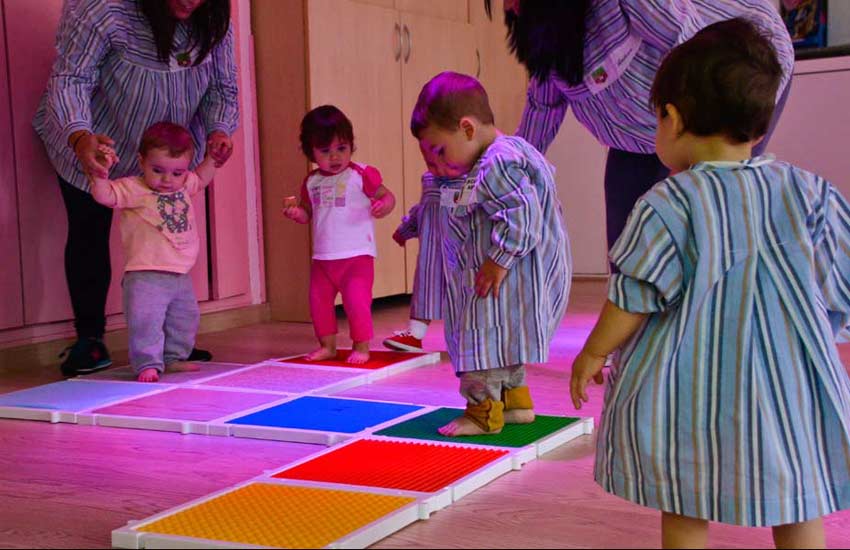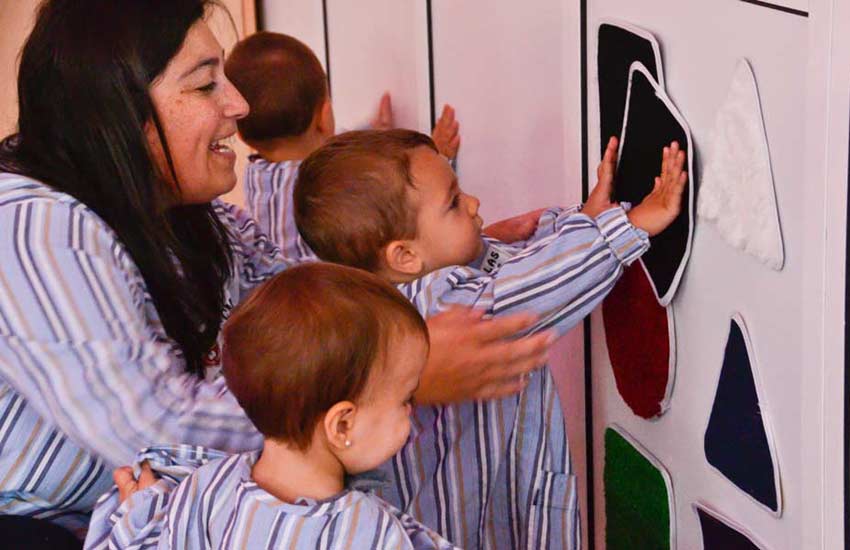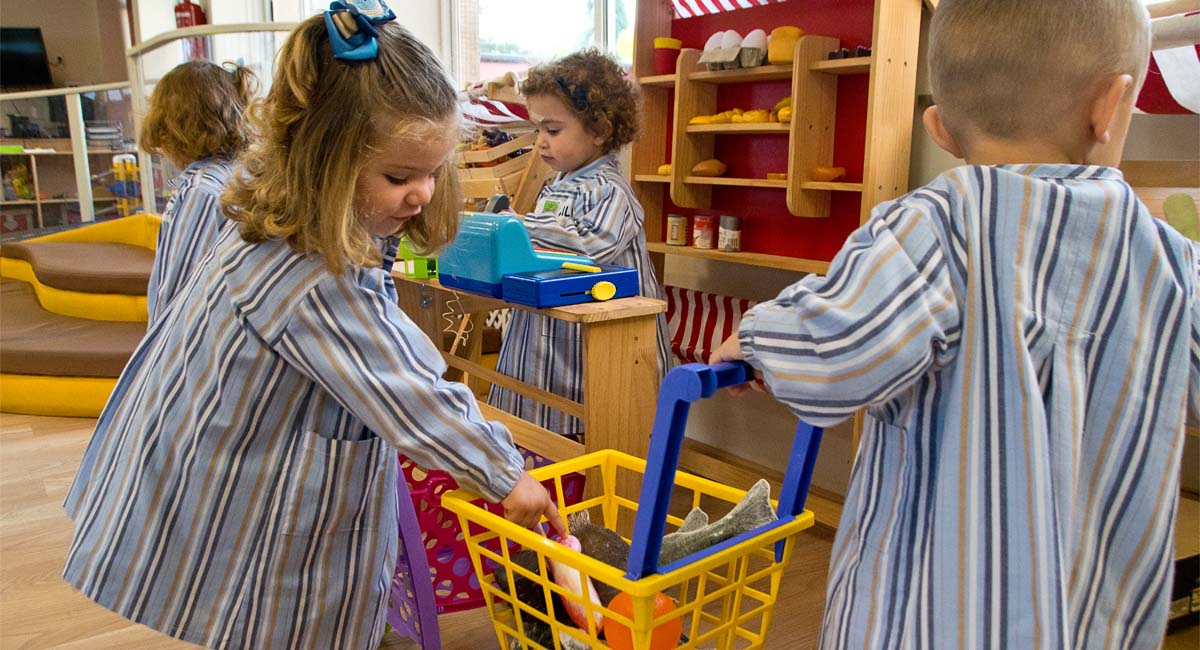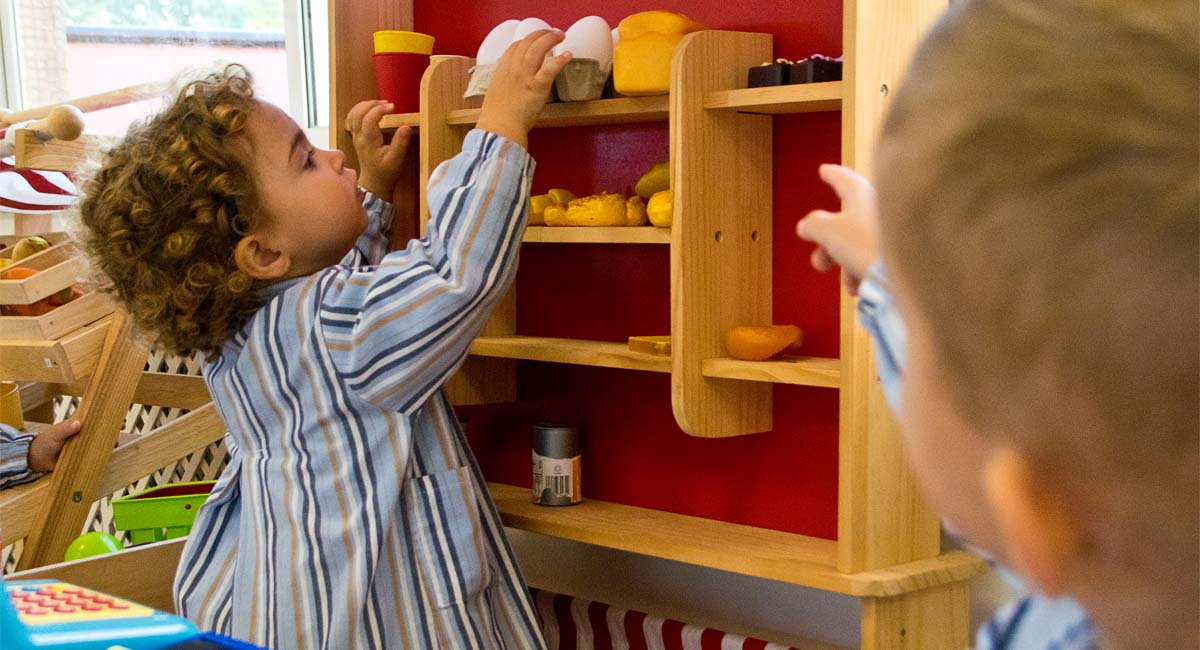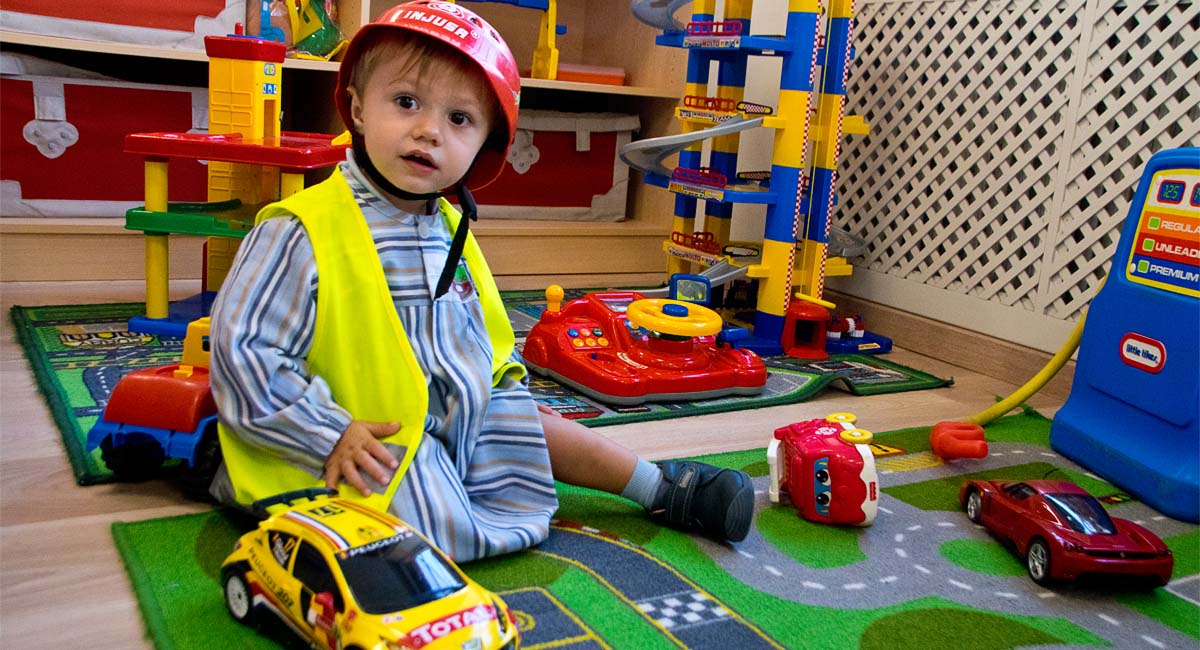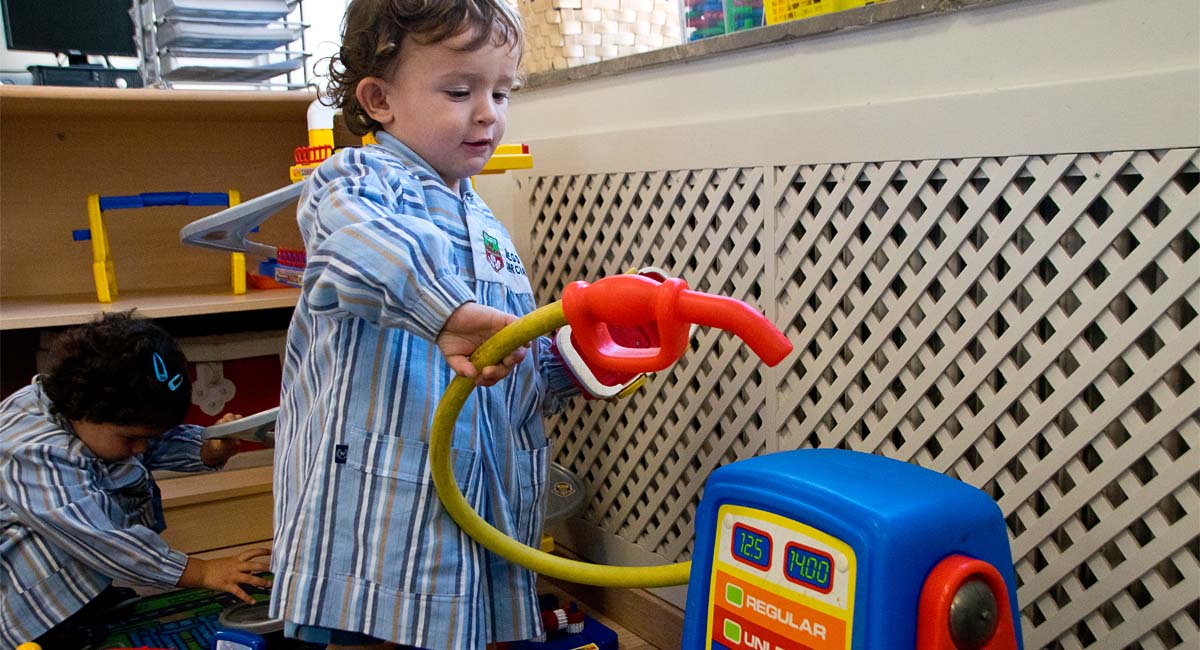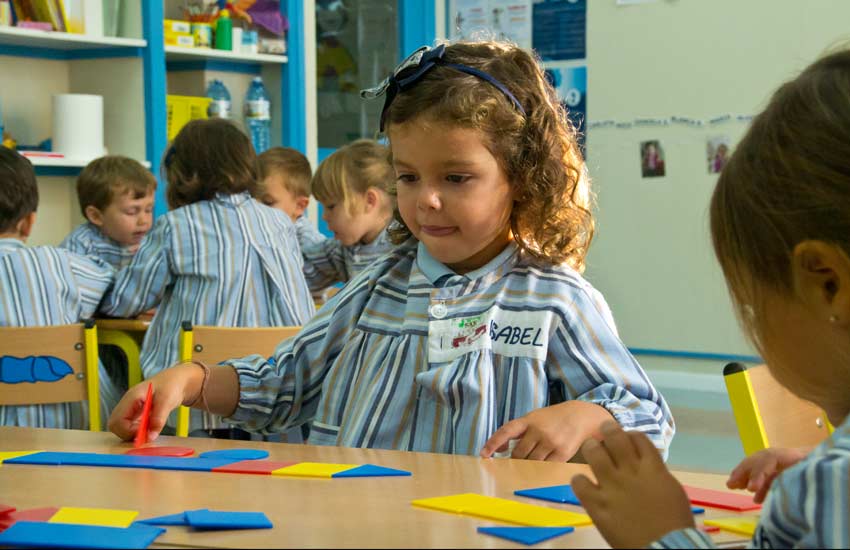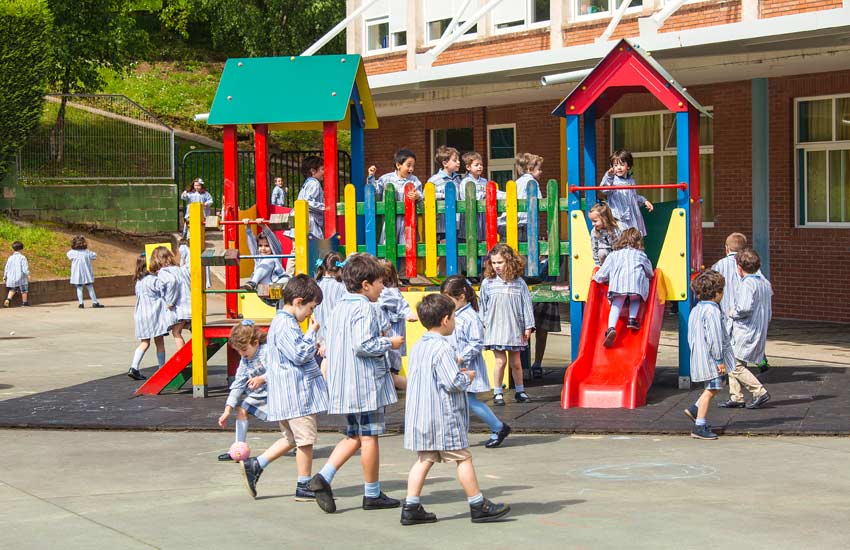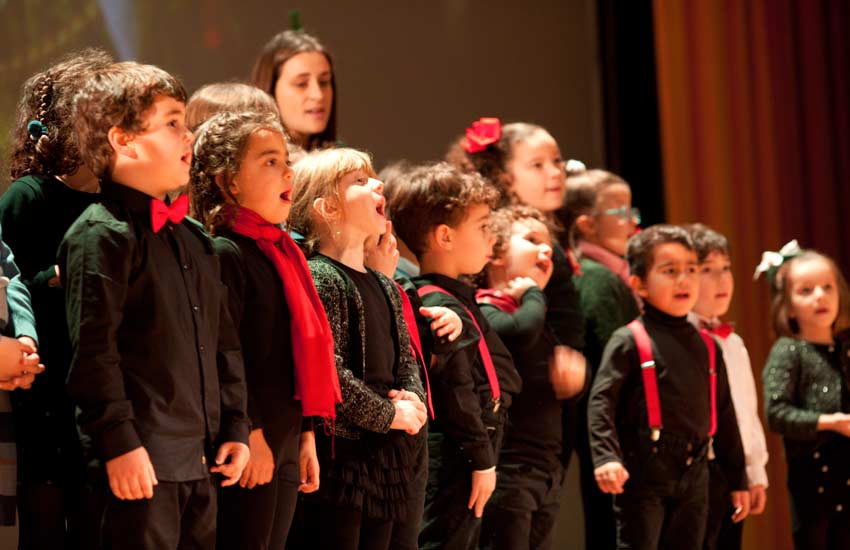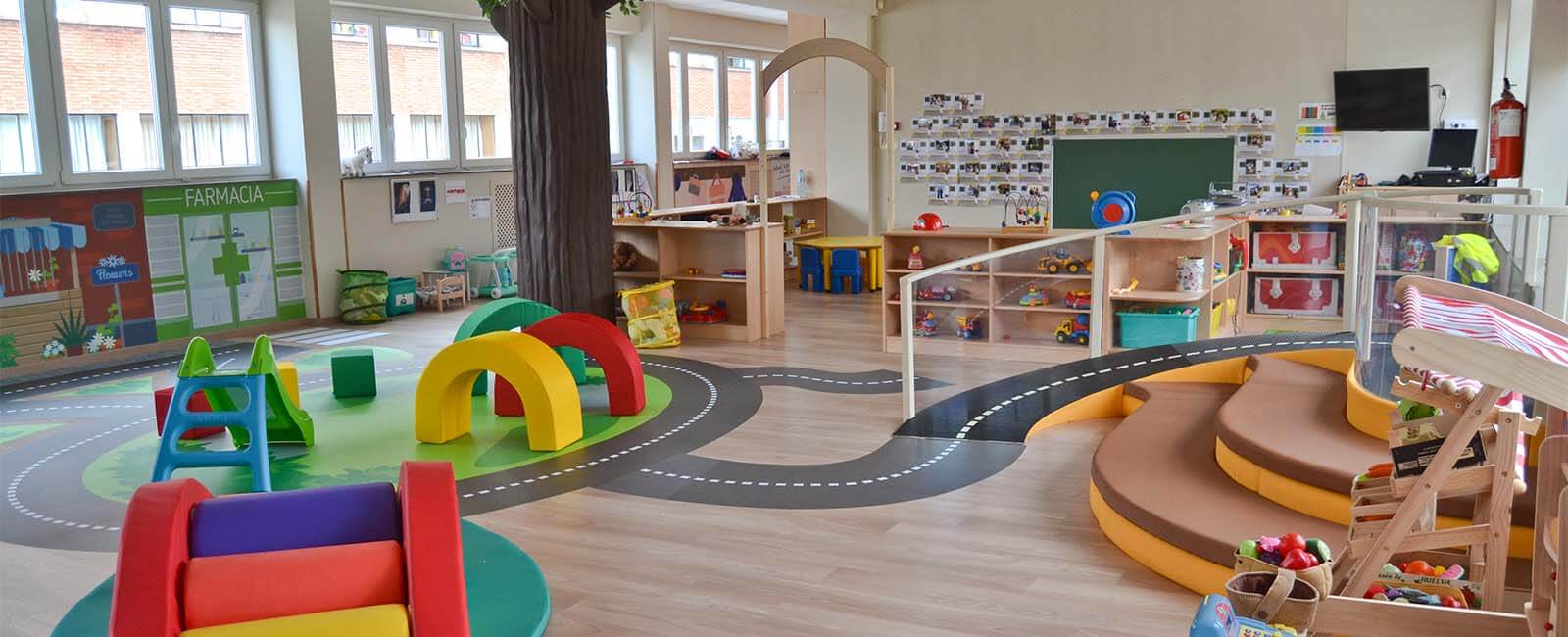
Kindergarten
Early schooling improves future school performance
An innovative Infantile Education in pedagogical techniques with an Early Learning, that we carry out in facilities adapted to the needs of our students.
The purpose of early childhood education is to contribute to the physical, emotional, social and intellectual development of girls and boys. It facilitates that they develop a positive and balanced image of themselves, acquire personal autonomy, learn to respect norms and fulfill their obligations, and increase their affective capacities.
ObjectivesIn our center we offer the two cycles of Early Childhood Education:
- First cycle: From 4 months to 2 years of age.
- Second Cycle (concerted): From 3 to 5 years of age.
Schedule
To reconcile work and family life, the Early Childhood Education Center adapts to the working calendar of parents
Classrooms 0 and 1 year
In the period from 0 to 2 years we work the early stimulation, following among others, the methodological line of Maria Montessori and Glenn Doman. We start from the need to develop the sensory and motor aspects as the main approach to the intelligences of children, incorporating the braking ladders at all levels.
We have created a sensory stimulation classroom where we can work on the motor and sensory aspects as a fundamental way of approaching the intelligences of children. In these ages, learning is mainly sensorimotor and therefore, any stimulation starts from the base of the movement.
We do not forget the Cognitive stimulation, which among other methodologies is carried out through the Intelligence bits, develop and expand the neural connections that will facilitate school learning later.
Infant Education 2 years
In two years we followed the Montessori methodology and the model of Schools Reggio Emilia, bringing learning closer to students' daily life, starting from real situations and materials that guide them towards knowledge, with wide spaces that differ from the usual concept of a classroom.
Directed by their teachers, through play and imagination, children enjoy learning and discovering the world around them.
The space is the third teacher. An 150m classroom has been designed2 that simulates a city, where the establishments and the most habitual professions appear.
They are incorporated in corners and the work is distributed among them.
El Creative Atelier It is a workshop where textures, colors, flavors are experimented with and the first approaches to the scientific method are made.
The corners in our city
The cityThe whole space is designed as a city, our city, that brings children closer to their immediate surroundings, identifying the establishments by their function, and learning to move in this space with respect. Recognizing a traffic light, knowing how to stop at a zebra crossing is the beginning of your experience with Road Safety Education. |
|
Health areaThe doctor allows us to know the parts of the body, talk about the protection of health and how to avoid diseases. We are familiar with its "instruments" to allow then to make use of health services without fear. Identifying animals, learning to respect them and taking care of them is another objective of this corner. |
|
Music and the TheaterPerforming arts are the ideal means to express and recognize emotions, develop the aesthetic taste, creativity and active listening so important in all school areas. |
|
The houseThe first learning must start from the knowledge of the closest and most daily. Recognize the spaces of a house: living room, dining room, kitchen, bedroom, and its utility. |
|
The marketThis area allows us to initiate students in the knowledge of food, but also in the rudiments of the economy: buy-sell. |
The assemblyPresent at the beginning of the day the activities to be performed and share moments of oral expression in a group, requires a comfortable, padded area that stimulates the free expression of ideas. |
|
Manipulative work zoneIn this area is the area of workshop: with tools and nuts to screw, turn, tighten; constructions to stack, form towers, roads or roads that complement the garage: they play with cars that have to be pushed in different directions to observe their trajectories. All this favors the oculi-manual coordination and initiates them in spatio-temporal notions. |
|
The SchoolIdentifying a space as "the school" allows us to initiate students in the way of school work: knowing how to sit in a chair, wait turns, use writing and painting supplies, their "first jobs" school, listening and attention, etc. . |
|
El parkAs important or more than learning concepts, is the development of the motor area, the fundamental basis of their learning. This area allows to work the psychomotor skills and enjoy climbing the slide, crossing tunnels of foam structures ... |
|
The AtelierThis differentiated space is the experimentation workshop and creative atelier, in which the students explore different textures, colors, flavors and make the first approaches to the scientific method. |

Ana Granda
Head of Child Education Studies
Contact us now!
Conduct an interview and come to know our facilities and Educational Project. Call the 985 565 745, or fill in the Contact Form.


The programs of International Baccalaureate (IB) they stimulate students to achieve their academic and personal goals, which leads them not only to excel in their studies, but also in their personal growth.
El Primary School Program (PEP) is a program aimed at students from 3 to 12 years that focuses on the development of the whole child and its capacity for inquiry and discovery, inside and outside the classroom. Prepares students to be active, supportive and adopt a learning attitude throughout their lives, to show respect for themselves and others, and have the ability to participate in the world around them.
Learn more
During the first years of life the brain is in full development, and children acquire a second language naturally.



EntusiasMAT is a didactic-pedagogical program for children from 3 to 12 years divided into two stages (Infant and Primary) and based on Multiple Intelligences that allows us to work on mathematics in a contextualized way and adapted to the reality of the students.
One of the fundamental pillars of EntusiasMAT is the manipulative learning, which is carried out through games and experiential activities. It is a sensory learning that allows students to move from concrete to abstract thinking.
Learn moreFacilities and Equipment
- Exclusive spaces for Infant Education.
- Green area and game area.
- Spacious and bright classrooms, all exterior and newly remodeled.
- Interactive and tactile digital whiteboards in all Kindergarten classrooms from 3 years.
- Covered court.
- Music room and psychomotricity perfectly equipped.
- Dining room exclusively for children's education.
- Specific spaces for the Psychopedagogical Counseling Department.
Services in Early Childhood Education
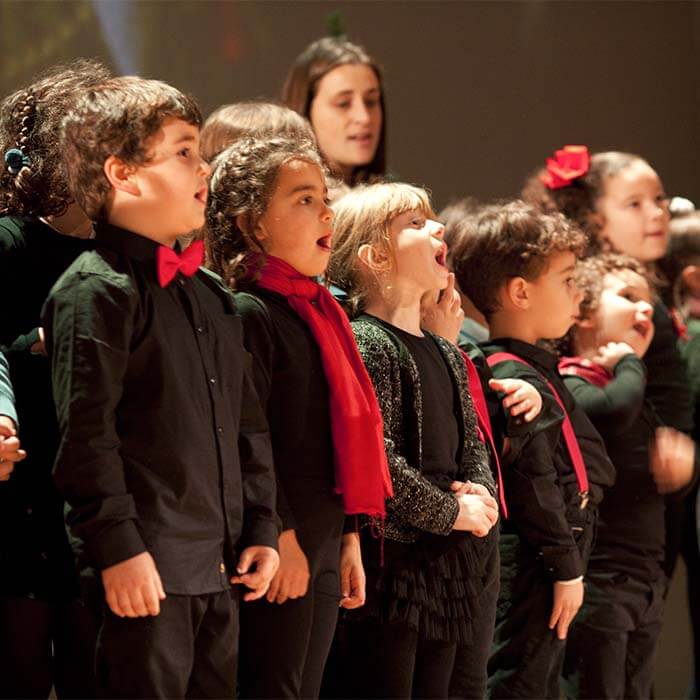

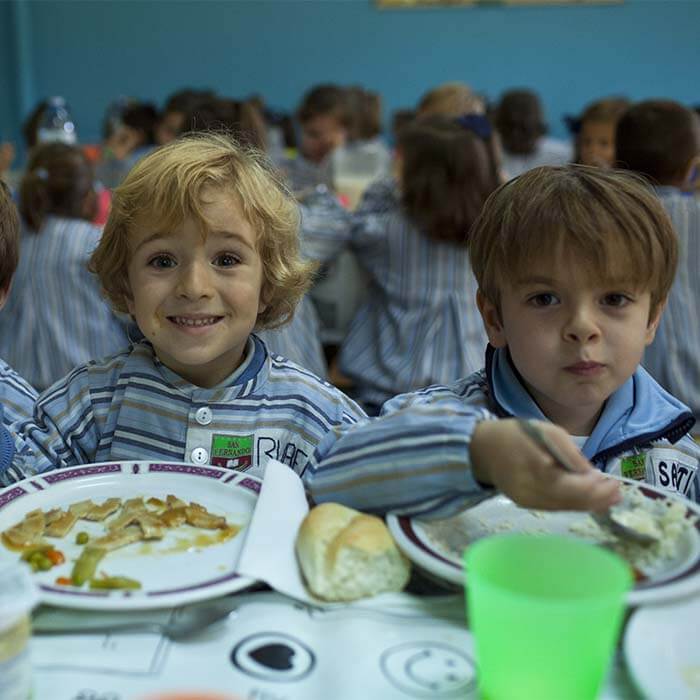
School canteen
- Specific dining room for Early Childhood Education.
- Preparation of daily menus at the school itself.














